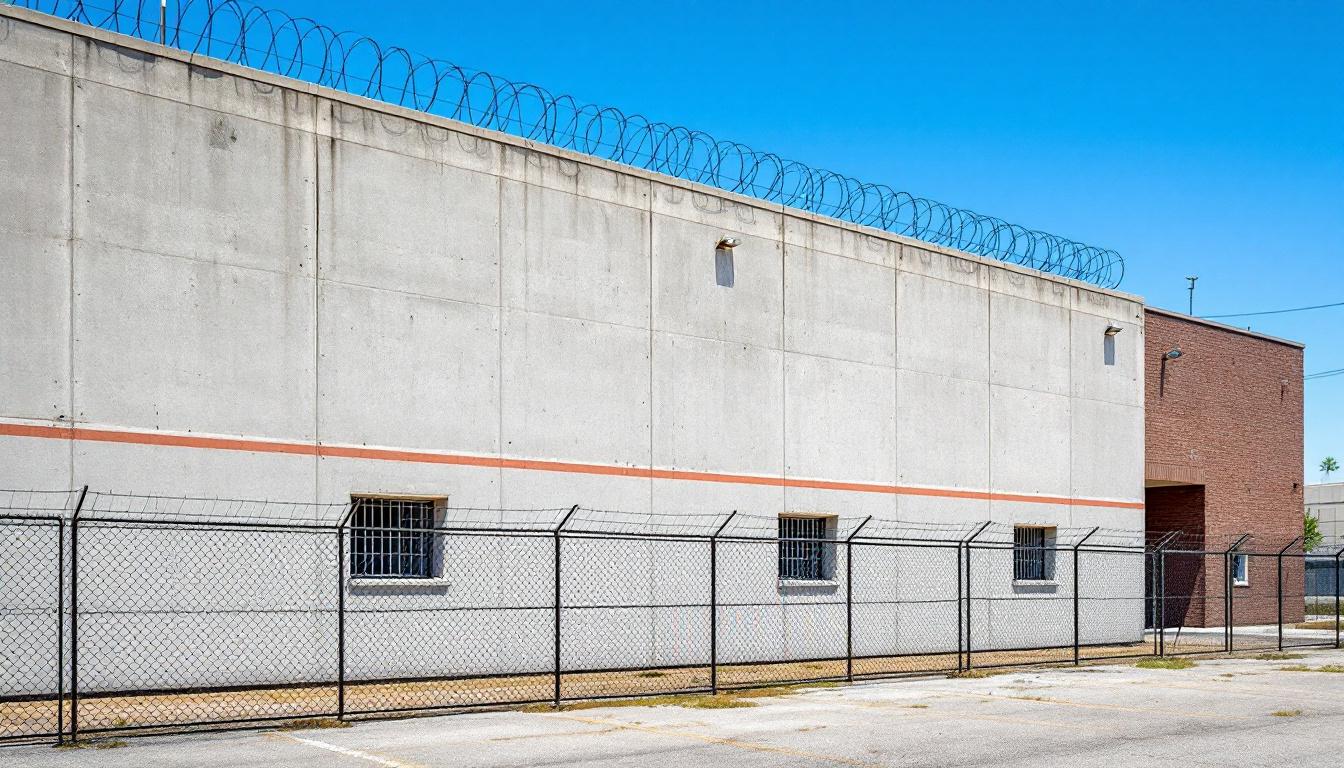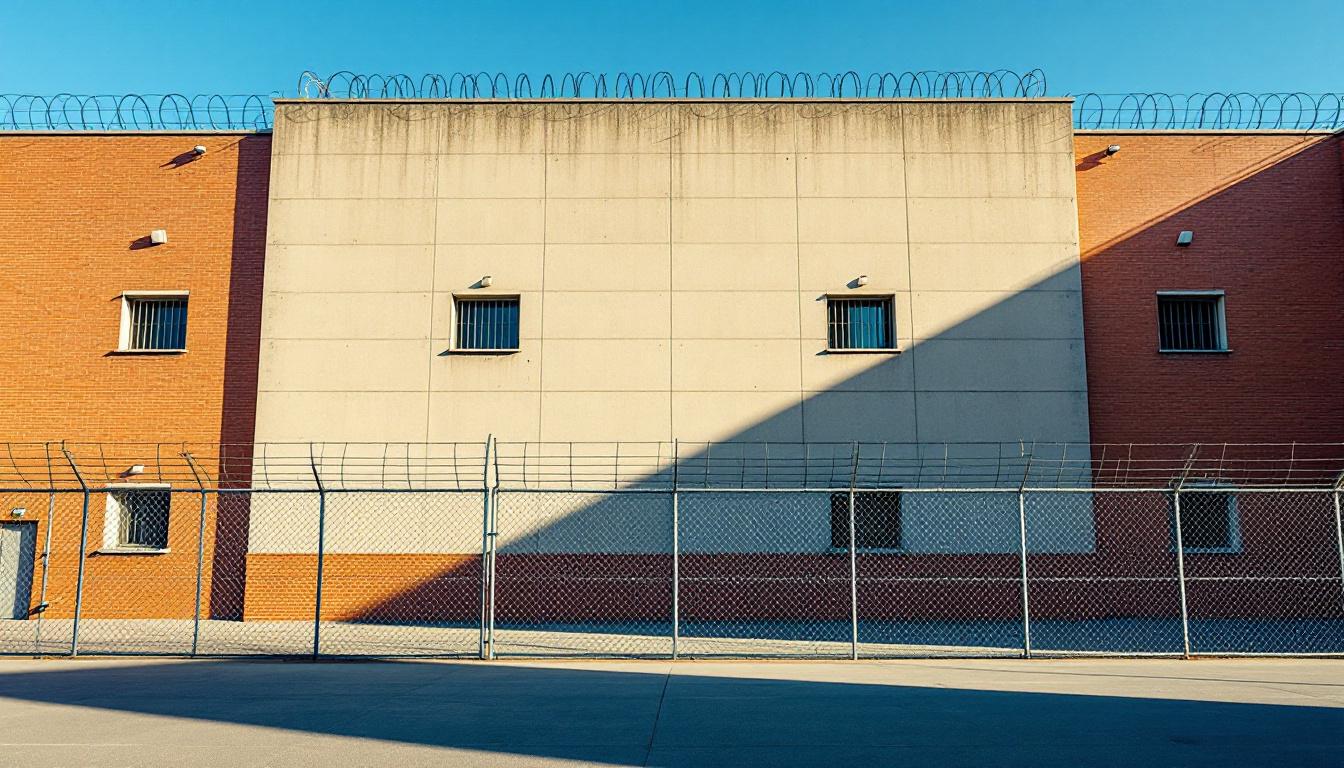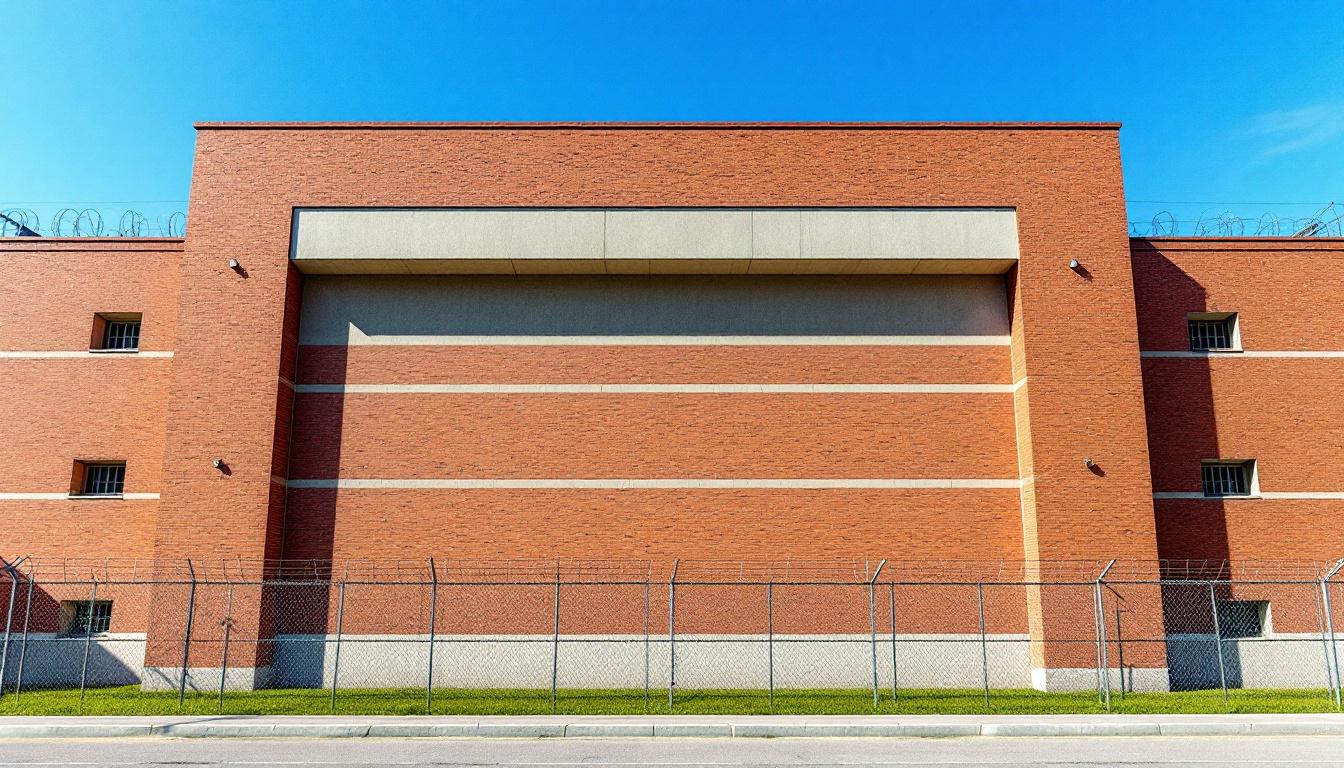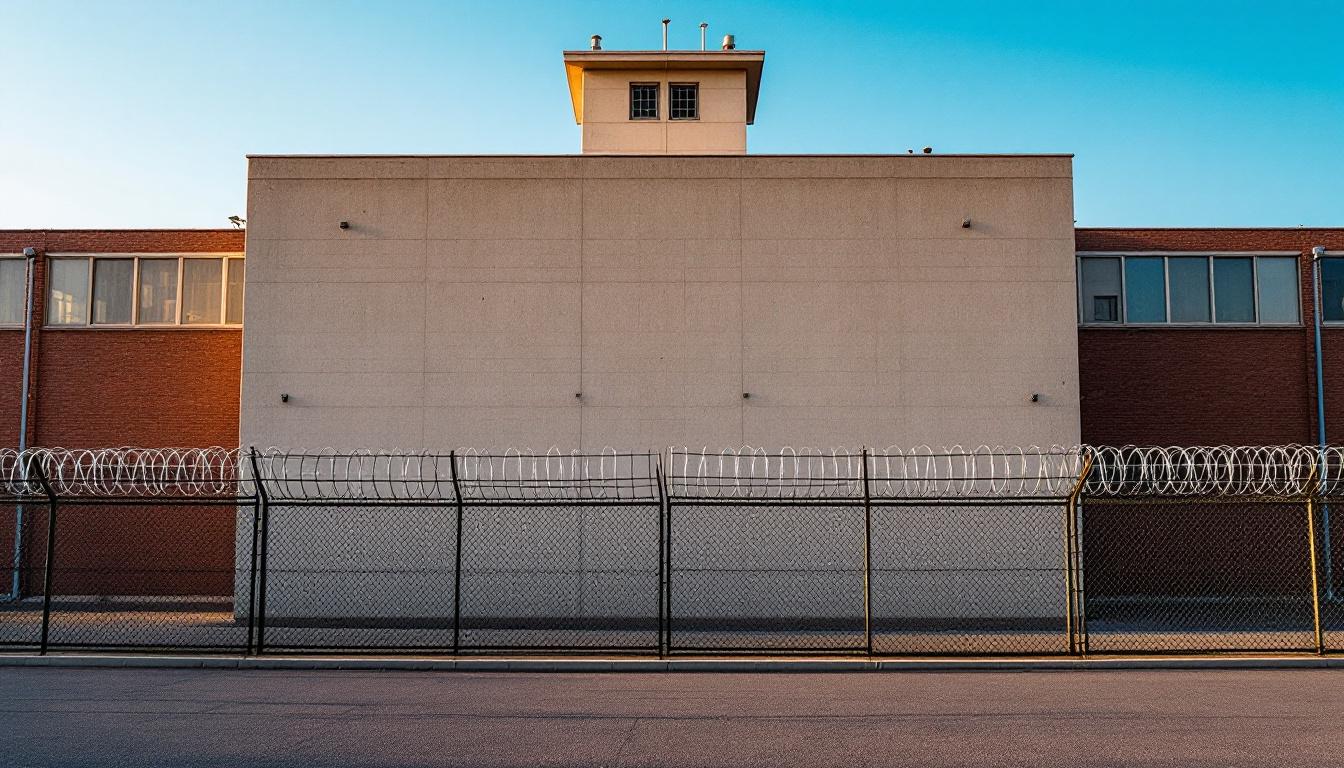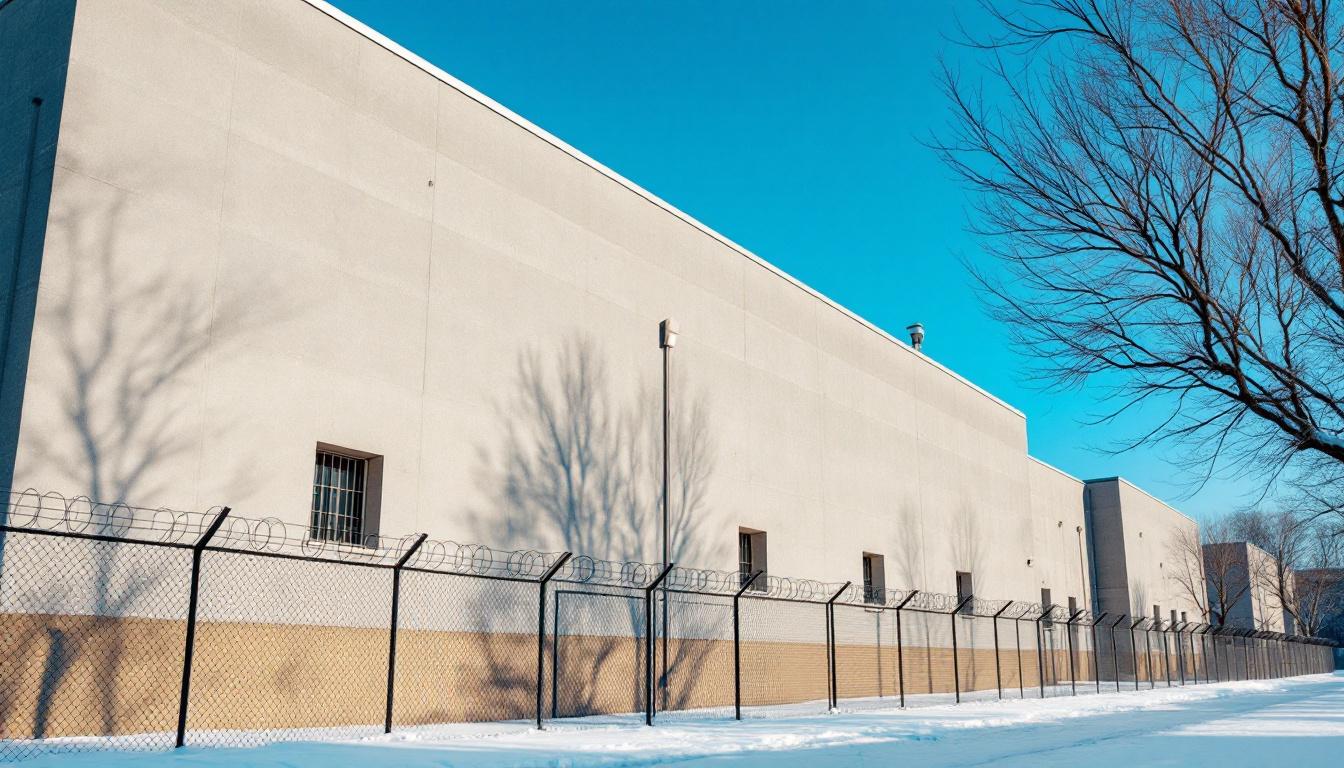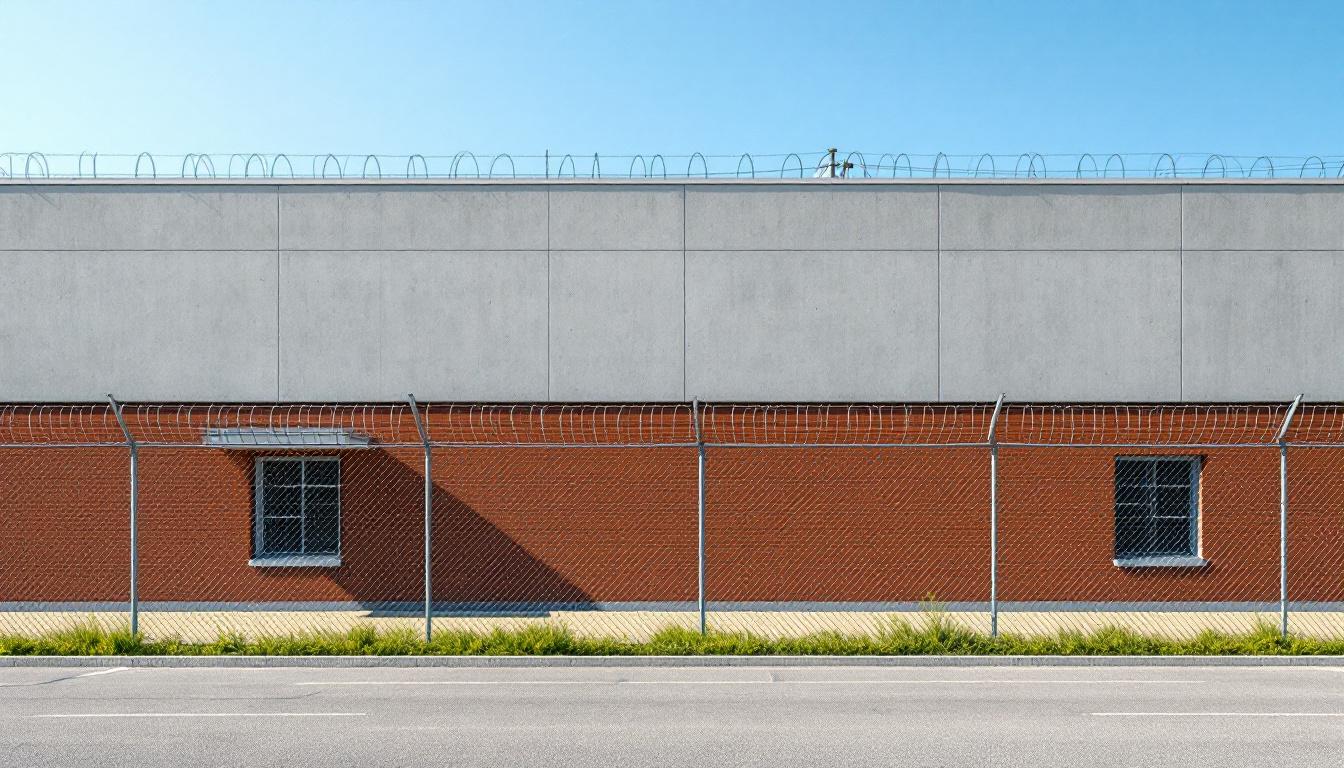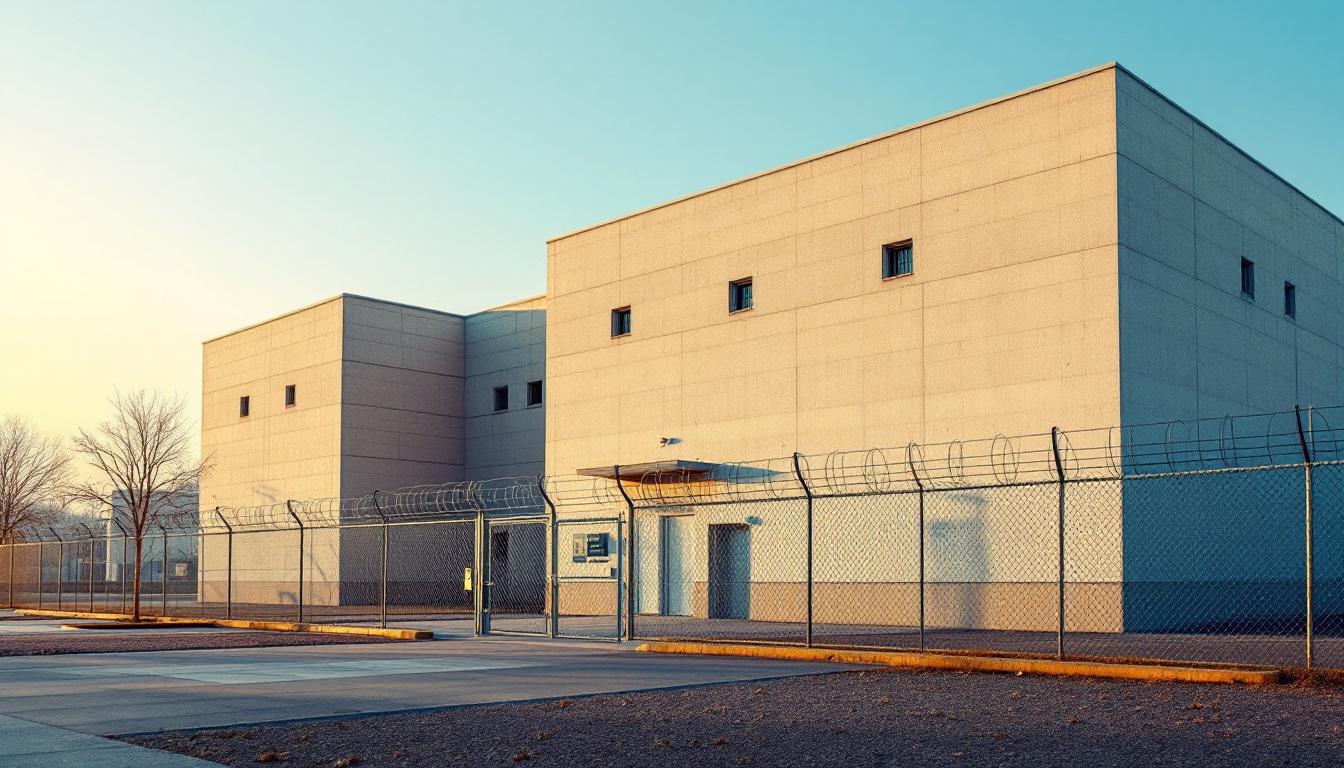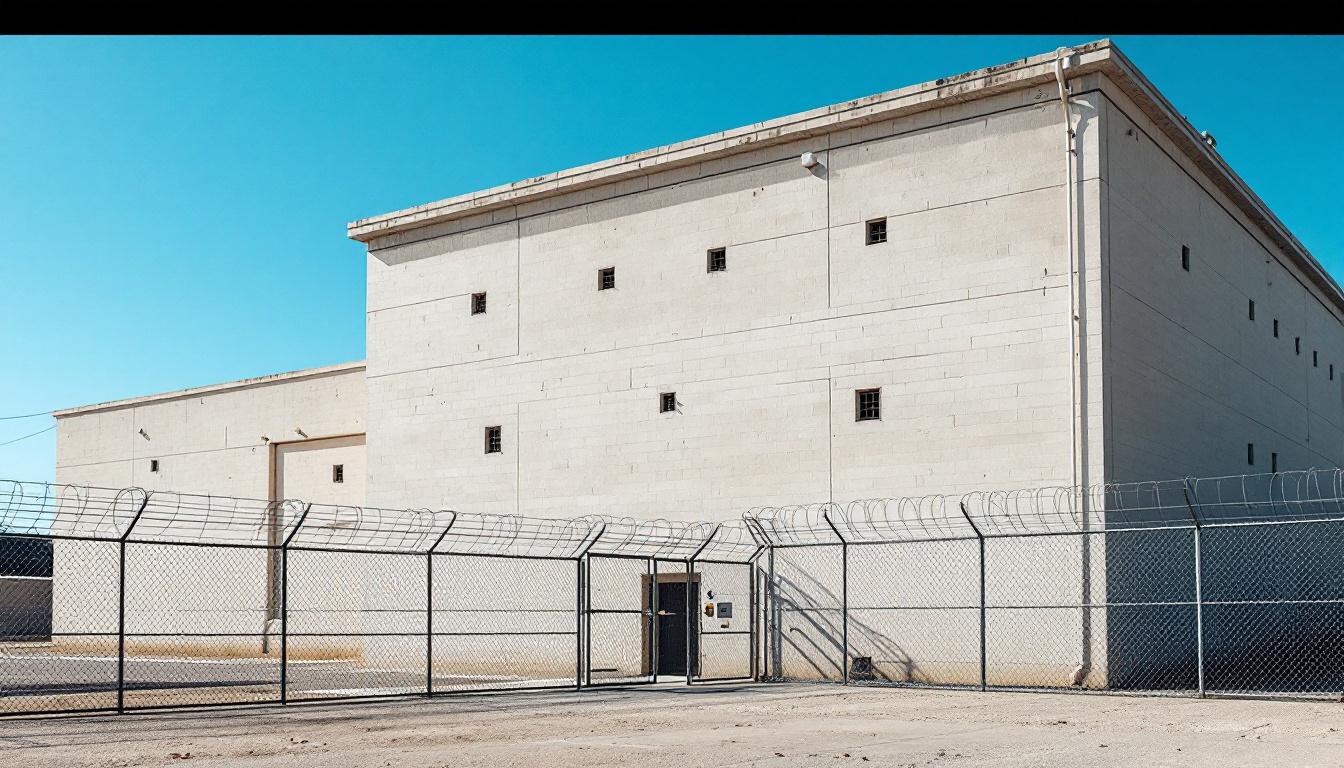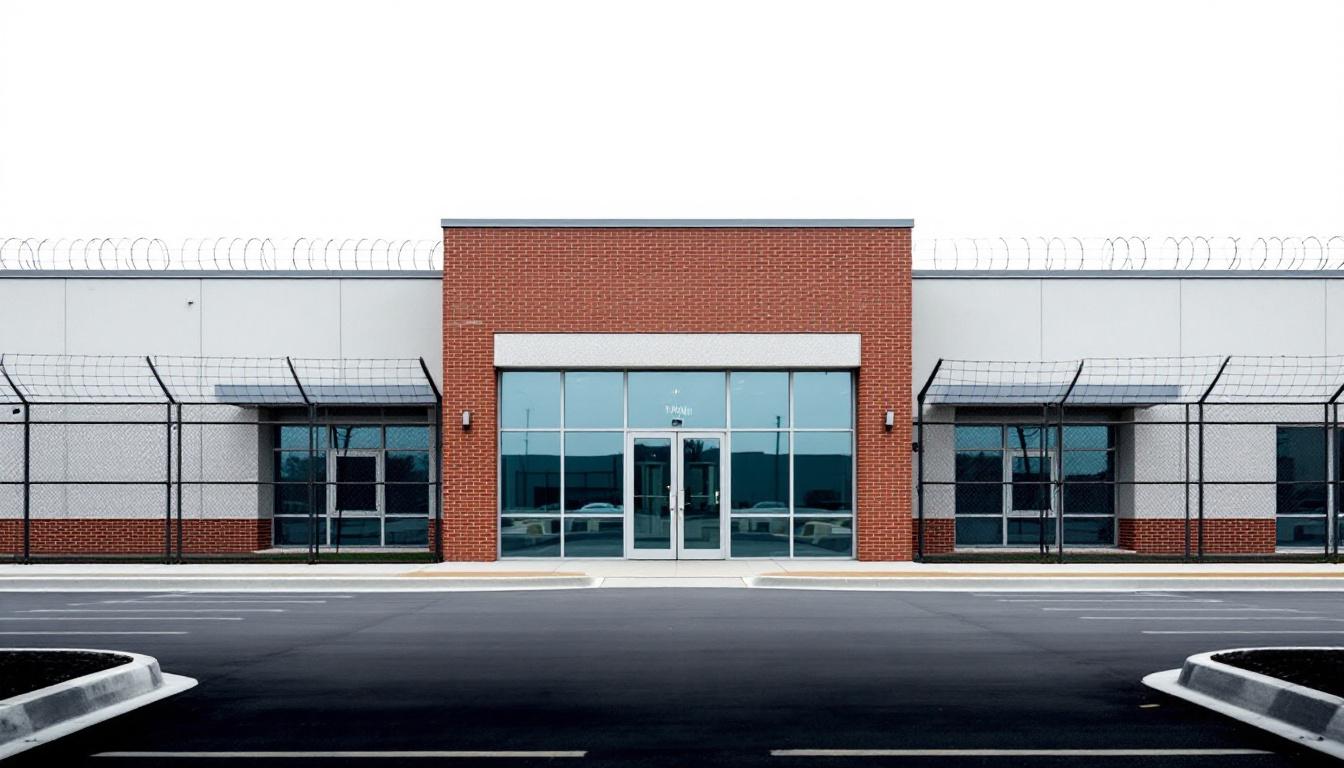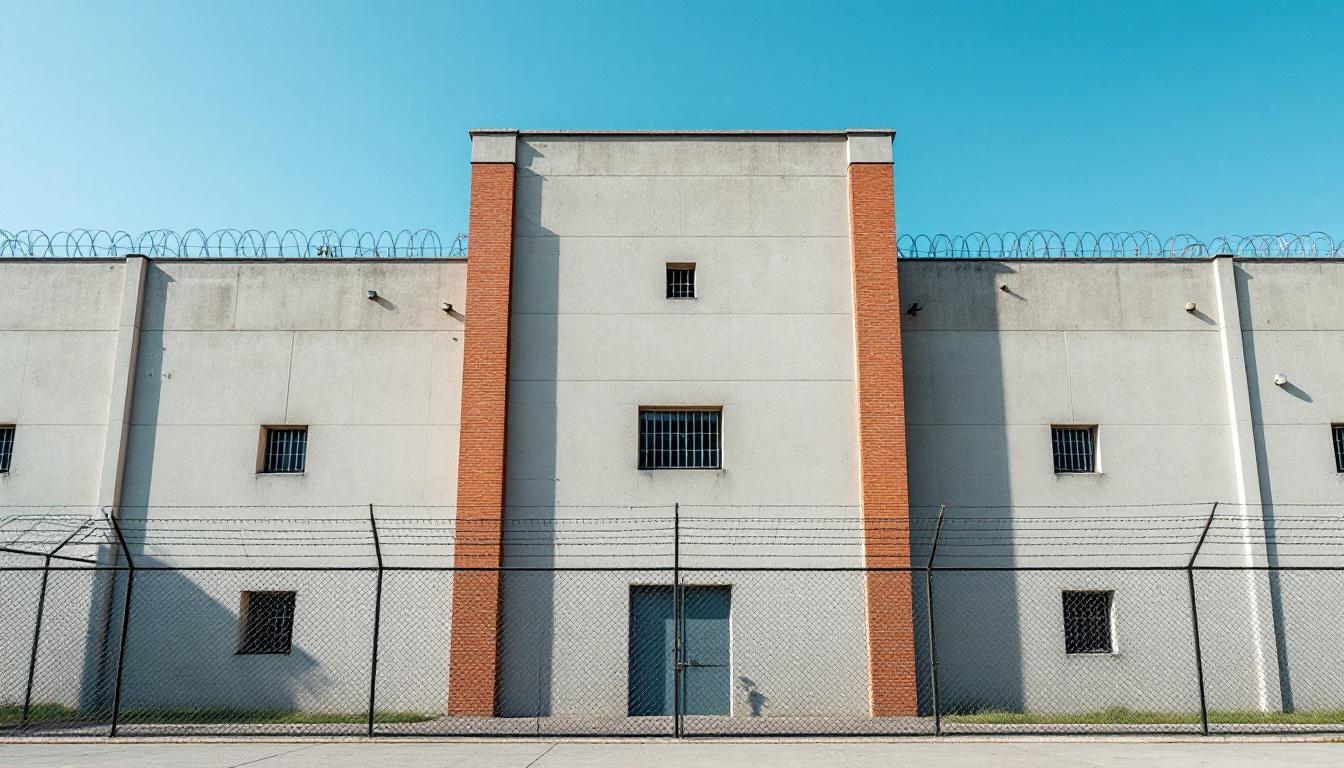
Quick Navigation
How to contact an inmate at Madison Parish Hospital
This comprehensive guide will walk you through how to connect with an inmate at Madison Parish Hospital. Follow the steps below to find an inmate and send letters and photos:
- Search for the inmate using our search tool below
- Create your account or log in to Penmate
- Write your message (up to 6,000 characters)
- Send instantly - inmates receive printed copies daily
Find an Inmate
Search for an inmate to start communicating today
Tip: You can search by first name, last name, or inmate ID number
To contact a person at Madison Parish Hospital start by searching for the person on the official facility website. Perform a search by following these steps:
- Step 1: Enter their first name and last name into the search form and click "Search"
- Step 2: Locate their inmate record
- Step 3: Write down their Inmate ID and any housing information provided
Important! Be sure to enter the person's full name. Nicknames should not be used.
How to Send Messages to Inmates

You can use your phone or computer to send emails, letters, and photos to an inmate. Messages are sent electronically to inmate tablets or kiosks at the facility. If you would like to send a message, start by searching for an inmate at Madison Parish Hospital.
Sending Photos and Postcards

A great way to send love and support to a loved one at Madison Parish Hospital is to send photos and postcards. It only takes a few minutes to send photos from your phone and it makes a huge difference. You can also mail postcards with words of support and inspiration, or design your own postcard for special moments like birthdays and holidays.
Important! Be sure not to send any explicit photos or they may not be approved by the facility. You can also use a photo printing app like Penmate to make sure your photos are printed at the correct size (4x6 or 3x5) and are mailed according to the rules and regulations of Madison Parish Hospital.
Frequently asked questions about Madison Parish Hospital
-
How long does it take to deliver a message?
If you're sending an email message your letter is usually delivered within 24-48 hours. For messages sent via mail you should expect delivery within 3-7 days. All messages will need be approved by Madison Parish Hospital.
-
How much does it cost to send a message to Madison Parish Hospital?
You can send a message free using your phone or mail a message via USPS for the price of a $0.60 stamp and envelope. You can also purchase credits or e-stamps from services starting at $1.99.
-
What services can I use to contact an inmate at Madison Parish Hospital?
Penmate
You can use Penmate to send letters and photos to an inmate from your phone. It's an easy way to stay in touch during your loved one's incarceration. Use the inmate locator to find an inmate's location and contact information, then you can send messages within a few minutes.
Securus messaging
Securus may be another option for communicating with an inmate at Madison Parish Hospital. You can create a friends and family account and purchase credits to send messages. All messages will be reviewed and must be approved by the facility.
JPay
Some county jails and state prisons may support sending messages with JPay. You must register an account with the system, find your loved one, and purchase stamps to send messages. For some locations you can also attach photos.
Smart Jail Mail
You may also check if Smart Jail Mail is available at Madison Parish Hospital. Smart Jail Mail is operated by Smart Communications and has contracted with some state and county jails. After purchasing credits, your messages and photos are sent to the facility, printed out, and then handed out to your loved one.
-
What is the mailing address of Madison Parish Hospital?
Mailing address:
Madison Parish Hospital
900 Johnson St
Tallulah, LA 71282
Phone: (318) 574-2374Business hours:
- Monday: Open 24 hours
- Tuesday: Open 24 hours
- Wednesday: Open 24 hours
- Thursday: Open 24 hours
- Friday: Open 24 hours
- Saturday: Open 24 hours
- Sunday: Open 24 hours
-
What are the visiting hours at Madison Parish Hospital?
Visiting hours at Madison Parish Hospital vary by housing unit and security level. Generally, visits are scheduled on weekends and holidays, with some facilities offering weekday visits. Contact the facility directly at (318) 574-2374 or check their website for the current visiting schedule. Visits typically last 30-60 minutes and must be scheduled in advance.
-
What items are prohibited when sending mail to Madison Parish Hospital?
Prohibited items typically include: cash, personal checks, stamps, stickers, glitter, glue, tape, staples, paperclips, polaroid photos, musical or blank greeting cards, hardcover books, magazines with staples, and any items containing metal or electronics. Only send letters on plain white paper with blue or black ink. Photos must be printed on regular photo paper (no Polaroids). Always check with Madison Parish Hospital for their specific mail policies.
-
How do I send money to an inmate at Madison Parish Hospital?
You can send money to an inmate at Madison Parish Hospital through several methods: 1) Online using JPay, Access Corrections, or the facility's approved vendor, 2) Money orders mailed directly to the facility with the inmate's name and ID number, 3) Kiosks located in the facility lobby, or 4) Over the phone using a credit or debit card. Fees vary by method, typically ranging from $2.95 to $11.95 per transaction.
-
Can I schedule a video visit with an inmate at Madison Parish Hospital?
Many facilities now offer video visitation as an alternative to in-person visits. At Madison Parish Hospital, video visits may be available through services like Penmate, Securus Video Connect, GTL, or ICSolutions. Video visits typically cost $10-20 for 20-30 minutes and must be scheduled in advance. You'll need a computer or smartphone with a camera and reliable internet connection. Contact the facility for their specific video visitation policies and approved vendors.
-
What identification do I need to visit an inmate at Madison Parish Hospital?
All visitors must present valid government-issued photo identification such as a driver's license, state ID, passport, or military ID. Minors must be accompanied by a parent or legal guardian who can provide the minor's birth certificate. Some facilities require visitors to be on the inmate's approved visitation list, which may require a background check. Contact Madison Parish Hospital for specific ID requirements and visitor approval procedures.
-
How can I find out an inmate's release date?
To find an inmate's release date at Madison Parish Hospital, you can: 1) Use the online inmate search tool if available, 2) Call the facility's records department, 3) Contact the inmate's case manager or counselor, or 4) Have the inmate provide this information during a call or visit. For privacy reasons, some facilities only release this information to immediate family members.
Facility Overview
Official Website

About Madison Parish Hospital
Educational programs, vocational training opportunities, and mental health support services form the foundation of daily operations at Madison Parish Detention, where individuals receive comprehensive care designed to address both immediate needs and long-term rehabilitation goals. This LA correctional facility in Tallulah serves as a vital component in Louisiana's commitment to public safety while prioritizing meaningful preparation for successful community reintegration.
Located in the heart of northeast Louisiana, the detention center typically offers substance abuse counseling, educational advancement opportunities, and work-readiness programs that help individuals develop practical skills for their eventual return to the community. Staff members generally focus on creating an environment where personal growth and accountability can flourish, recognizing that effective rehabilitation requires addressing the underlying factors that may have contributed to criminal behavior. The facility's approach to individuals services often includes case management support and family communication programs that help maintain important connections during incarceration.
Community partnerships and collaborative efforts with local organizations frequently enhance the center's ability to provide relevant programming that reflects the specific needs of the Tallulah area and surrounding parishes. Through these connections, the detention center may offer job placement assistance, continuing education resources, and transitional support services that bridge the gap between incarceration and community life, ultimately contributing to reduced recidivism rates and stronger, safer neighborhoods throughout the region.
Programs & Services
The breadth of developmental opportunities available reflects a comprehensive approach to individual growth and community preparation. Madison Parish Detention typically emphasizes multifaceted programming that addresses educational deficiencies, vocational skill development, and personal behavioral challenges through structured interventions. This holistic framework recognizes that meaningful rehabilitation requires addressing diverse aspects of an individual's circumstances, creating pathways for both immediate personal development and long-term community reintegration success.
Educational advancement opportunities often include adult basic education programming designed to address fundamental literacy and numeracy gaps that may have contributed to an individual's circumstances. These academic interventions typically provide foundational learning experiences that enable participants to pursue further educational goals upon release. In addition to this academic foundation, vocational training opportunities may offer practical skill development in various trades and technical areas, equipping individuals with marketable competencies that enhance employment prospects and economic stability in their communities.
Therapeutic and support services typically encompass anger management programming that addresses behavioral patterns and emotional regulation strategies. Faith-based services often provide spiritual guidance and community connection for those seeking such support during their period of incarceration. Stress management opportunities may offer practical coping mechanisms and wellness strategies, while intramural sports programming typically promotes physical fitness, teamwork, and constructive recreational engagement. These diverse support mechanisms work collectively to address the psychological, spiritual, and physical dimensions of personal development within the correctional environment.
Daily Life & Visitation
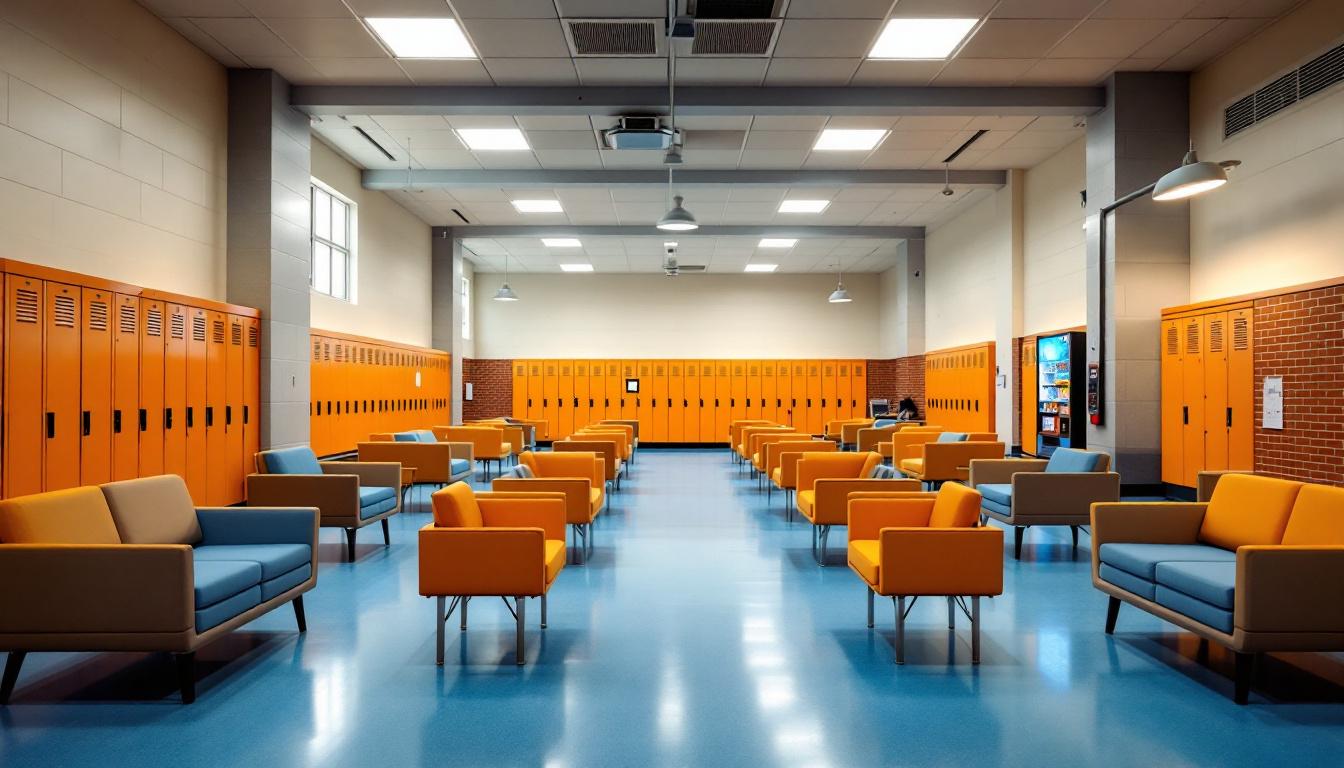
The steady rhythm of institutional bells and announcements now punctuates each day for individuals housed at Madison Parish Detention, creating a predictable framework that helps residents navigate their time within the facility. Wake-up typically occurs in the early morning hours, followed by cell inspections and headcounts that regularly occur throughout each day to maintain security protocols. Individuals generally move through structured meal times in the dining hall, where they receive three meals daily that must meet basic nutritional standards, though the quality and variety may vary depending on the facility's resources and food service contracts.
Living accommodations within the facility typically consist of shared cells or dormitory-style housing units, where individuals often share space with one or more roommates in areas that include basic furnishings such as beds, storage areas, and shared bathroom facilities. The housing environment generally maintains strict cleanliness standards, with individuals expected to keep their living spaces orderly and participate in regular cleaning duties. Personal property allowances usually include basic hygiene items, limited clothing, and small personal effects that meet security guidelines, while additional items may often be purchased through the commissary system when funds are available.
In addition to this structured daily routine, the facility may offer various recreational activities and programming opportunities designed to provide constructive use of time, including outdoor recreation periods, educational classes, and work assignments that might involve kitchen duties, maintenance tasks, or facility cleaning responsibilities. Despite this programming, family connections remain crucial for individuals' well-being, with visitation policies typically allowing scheduled visits from approved family members and friends, though these sessions generally occur under supervised conditions and may include restrictions on physical contact. Communication with the outside world usually includes regulated phone calls and mail correspondence, providing essential links to support systems that can significantly impact an individual's adjustment to facility life and preparation for eventual release.
Ready to Connect?
Start communicating with your loved one today
Search for an Inmate
